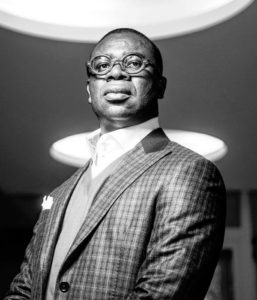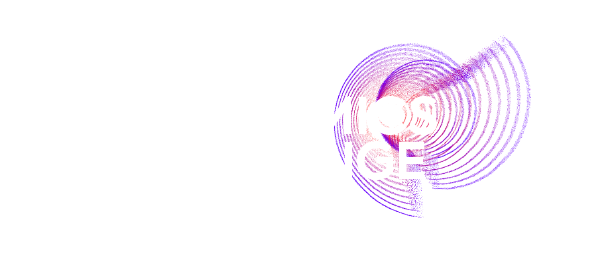SUSTAINABLE CAPITALISM: BALANCE OF SOCIOENVIRONMENTAL DEVELOPMENT AND PROFITABILITY AS STRATEGY TO IMPEL BUSINESS

In a post-Covid-19 world, various enterprises are predicting drastic changes for their management and strategies. Many of them are already observed now: Less travels, more remote work, less concentration in cities. This will demand creative agility from great leaders in order to find innovative ways of balancing their collaborators’ well-being and their social responsibilities with the financial necessity of their business.
However, Covid-19 is only one crisis among so many others occasioned by capitalism along world history. In 2019 alone, more than two tons of ice melted in Greenland, being considered the major event of its kind in history, at the same time that more than 800 million people starve in the world. Those episodes are consequences of an economic model which does not reflect on the preservation of nature and gives incentive to a growing social inequality.
If we keep on this velocity, our prognostic is alarming: more viruses are going to decimate the population, we will have a permanent financial crisis scenario, social inequality will increasingly grow, and pressures over the environment will be more commonplace and implacable. Therefore, it is evident that we need to change our view on the economic system in force. It is notably overcome and does not attend to the challenges of the 21st century.
Balancing profitability for enterprises at the same time in which social development and environmental preservation are promoted is the challenge of the current economy. But are there viable alternatives? In order to respond to contemporary challenges, it is necessary that leaderships from enterprises, governments and organizations think collectively and harmonically, reacting activelly and assertively in actions with a view to balancing the equation. It is necessary to think about Sustainable Capitalism as a path to respond to demands from the present society.
According to Nana Baffour, Chairman, CEO and Chief Culture Officer from Qintess, enterprises need to have concrete and increasingly well-founded actions in relation to the promotion of sustainable capitalism. “We need to create environments which are more inclusive and sustainable. Our mode of capitalism isn’t efficient and the pandemic has also shown that it isn’t sustainable”, he claims.
We talked with Nana about "Sustainable Capitalism in a world of changes", theme of the next Economics of Change, a digital event being held on the 4th of November. Check it out.
How did your interest in the theme Sustainable Capitalism rise?
Actually, I’ve been studying this theme for a long time. More than 20 years ago, I worked in the capital market, where I was an Investment Banker of one of the major banks in the world and worked with clients from the Utilities sector. By that time, I was in the team which made the first capture in the institutional capital market for a generator of eolian energy.
Then, when I startet to undertake in the data center area, which has a high demand of electricity, we were one of the first data centers to get a efficiency certificate in the use of electricity by the North American government.
And finally, personally speaking, I was born in Africa and arrived in the United States when I was 20 years old, where I grew up and built my career. The participation of the negro in the capital market and the undertaking market was also something which I started to question, to think about ways of working on social inclusion, about how to work on diversity within teams in order to create more ideas and foment innovation.
These are the three points which have merged during more than 20 years in order that I finally arrived at the conclusion that I have to do more so as to help creating corporate environments with a sustainable capitalism.
How is this pursuit of building sustainable capitalism within your enterprise made?
In order to do that, there are lots of elements, but first of all, it’s important to remind that we are trying to promote capitalism, that’s the first point. Capitalism needs to promote results, profits, performance, to promote efficiency in operations, agility, competences, among other things.
Only we are saying that we can promote capitalism in a sustainable way, where you look at the constituents of the enterprise: Clients, collaborators, share holders, and at society, and deal with all those constituents in a balanced manner, that is, you don’t harm any of those four so as to give advantage to one. Formerly, enterprises weren’t concerned about that balance, they were only concerned about share holders.
In our enterprise, we do that in a number of ways. One example is the settlement of partnerships with institutions of which we become sustainers. Thus, we support the inclusion of people who aren’t normally inside the technology market. We work with qualification of young people from peripheries and we’re starting to support enterprises owned by women, negroes and other people who hardly ever manage to get support. Thus, we started to develop stronger leaders in order that they also manage to create networks of goodness in their communities.
Which are the steps you indicate for leaders who wish to implement this method in their enterprises?
Our system of capitalism as world society isn’t sustainable, so crises which happen along history are on account of that. So, what leaderships from big enterprises need to start doing:
First, to consolidate the participation of people who aren’t normally inside big enterprises, such as professionals from peripheric communities. Second point, leaders need to look at the chain of supplies and to start inviting enterprises which are also outside their day to day, their community, in order that they may participate.
Why not contracting enterprises which were founded by people from the periphery, women or negroes? Leaderships need to make a point of giving opportunities and qualifying people who work for them, need to invest in collaborators in a rather active and assertive manner. Those concrete actions can start tomorrow, but willingness is necessary. It’s no good just to talk about it.
How to make enterprises, society and governmental organizations think about sustainable capitalism in a collective and harmonic way?
I have a simple message, it’s no good thinking that Brazil isn’t going to have a strong movement in the direction of a sustainable capitalism, because it’s going to have it. History shows us that when a change comes to society, this change starts little by little and becomes a revolution.
This is going to happen, whether you want it or not. It’s a matter of survival. It’s necessary to look through sustainable capitalism. The most strategic leaders have already started to study and take actions which are impacting the portfolio, the selection process, and the capital market.
In your opinion, which are the major challenges to create a global economic system which places the well-being of the population and the preservation of the environment in the foreground?
The first challenge is inertia and the second challenge is apathy. People think that it has nothing to do with them, they are more concerned about strategic problems and think about the actions for developing a sustainable capitalism as a waste of time. But whoever is really strategic, understands that this is as strategic as the creation of new solutions, for example.
You were born in Ghana, has already lived in the United States of America and has been able to live through other economic, social and environmental contexts. Making an evaluation, how do you see the Brazilian present situation in the face of sustainable capitalism?
In my opinion, Brazil is one of the countries in the world which has a lot to gain, if it manages to follow this path. Since it has, in the first place, a major part of its population which is not within the technology sector, the corporate sector. And as it manages to include this population, it is going to have a boom in its GDP.
The second point is that Brazil has a diversity of culture, of people, of climate, and of rich land, which places it in an outstanding position so as to become one of the world’s most innovative countries. The third point is the Amazon forest, which is what brings life to the world.
So, Brazil is already well-advanced on the matter of sustainability in respect to the environment, if it manages to accomplish inclusion of its population, aggregating all this with a strong and diverse culture, in my point of view, it’s one of the countries which has the most to gain with Sustainable Capitalism.
What may the leaders who will participate in Economics of Change, on the theme of Sustainable Capitalism in a world of changes, expect from the event?
They’re going to have access to researches which deal with the subject from a financial point of view. Many times, when one speaks of Sustainable Capitalism, people think that it brings no profits. Its participants are going to leave it with a more updated knowledge of the financial world to help them use and understand metrics which really show the way of measuring sustainable activities.
They’re going to understand how technology helps enterprises to create a sustainable capitalism. And they’ll see leaders who are already executing concrete actions by directing their movements in behalf of a sustainable capitalism.
Sharing information is the way we have found to build the changes the world needs. The third edition of Economics of Change gathers a selection of leaders and specialists in a debate on Sustainable Capitalism in a world of change. The meeting is being held on the 4th of November, at 10 a.m.
Register [now] and participate in this debate with world leaders who have knowledge and experience on the subject: https://economicsofchange.com/

Nana Baffour
Qintess President, CEO and Culture Director. He is also CEO and founder of Bottega S.a.r.l., a holding company that invests in technology opportunities. Graduated in Economics from Lawrence University, holds a Masters in Economics from the University of North Carolina, an MBA from the New York University Stern School of Business, and a Chartered Financial Analyst (CFA®️) certificate.
- October 30, 2020
- , 4:56 pm
